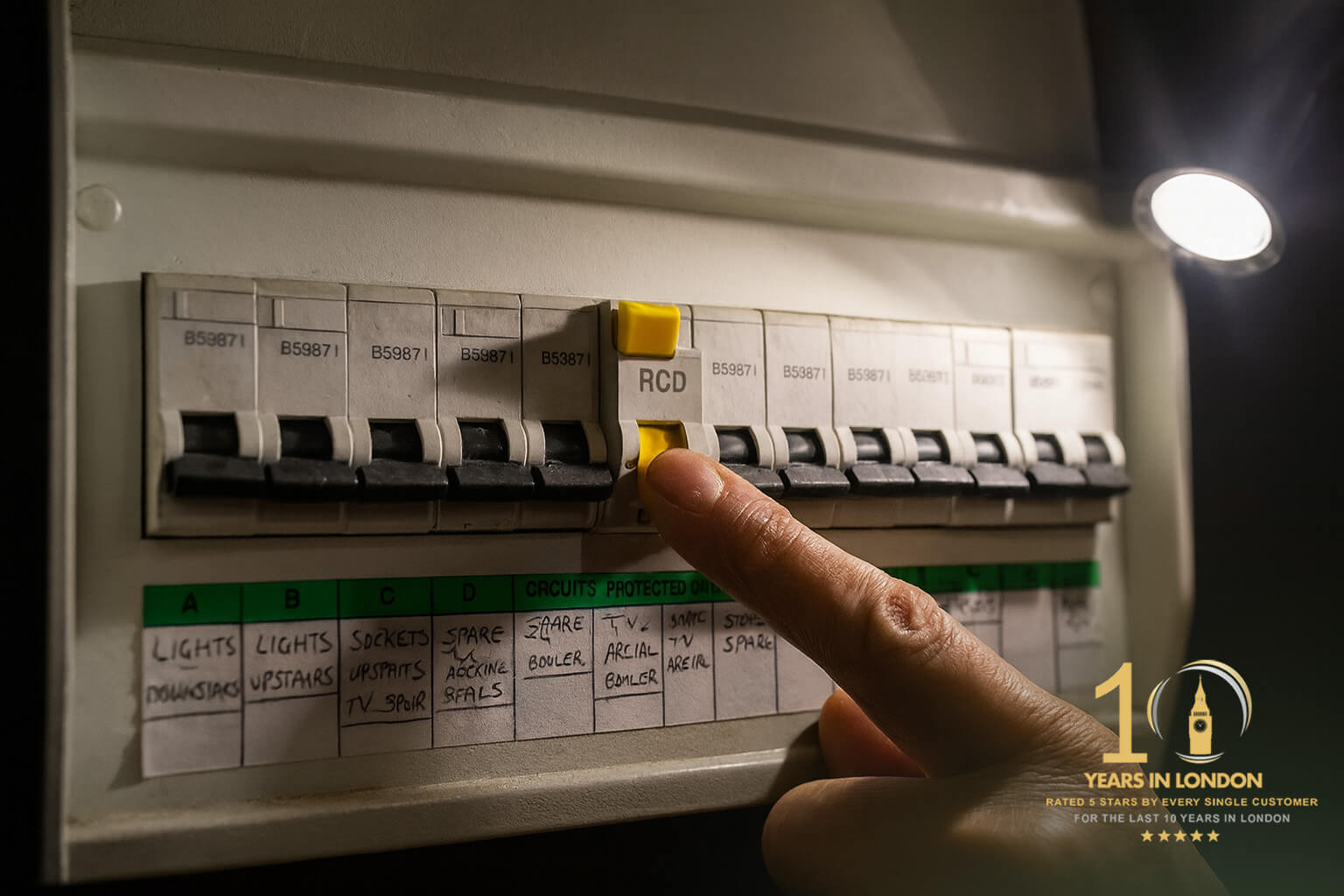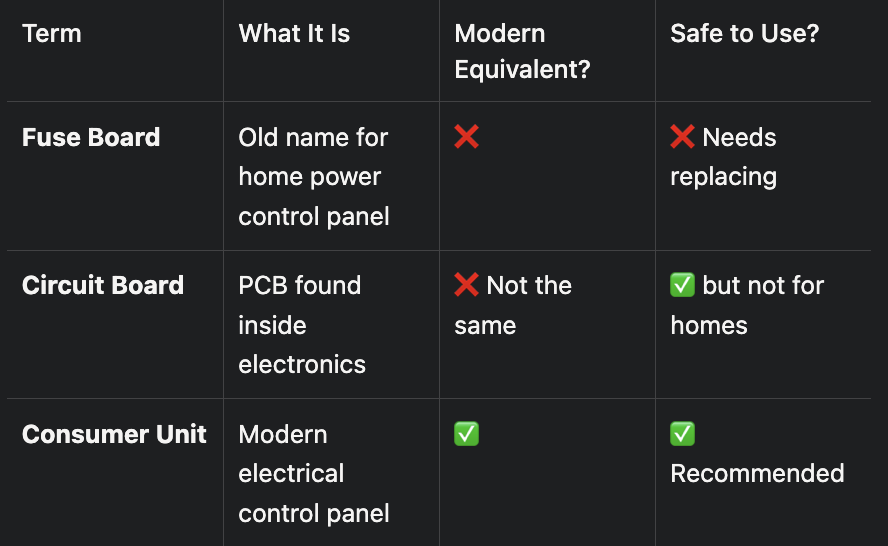
If you’ve ever spoken to an electrician or read your home’s electrical inspection report, you’ve likely come across the terms fuse board, consumer unit, and circuit board. Many homeowners in London use these terms interchangeably—but are they the same thing?
The short answer is: not quite.
In this article, we’ll break down each term, explain their differences (and overlaps), and help you understand which one matters most for the safety, efficiency, and compliance of your home.
Whether you're renovating, upgrading your EV charger, or getting a landlord certificate, understanding your home’s electrical control system is key. A modern, safe system can:
And at Lumiel, helping homeowners make informed, safe, and future-ready choices is what we do best.
A fuse board is the traditional name for what we now call a consumer unit. It was commonly used in UK homes before the early 2000s. A fuse board:
👉 If your property still has a fuse board, it’s likely outdated and should be upgraded—especially if you're installing energy-hungry appliances like EV chargers or air conditioning.
Common signs you have an old fuse board:
The term circuit board is often used by non-electricians to describe either the fuse board or consumer unit—but it technically refers to printed circuit boards (PCBs) inside appliances or electronic devices.
Think of your TV, your boiler, or your EV charger—each has its own circuit board. But these aren’t the central electrical panel that manages your whole home.
So, while “circuit board” gets thrown around in DIY conversations, it’s not the same as your home’s fuse board or consumer unit.
The correct, up-to-date term is consumer unit. This is the hub of your home’s electrical system.
A modern consumer unit includes:
At Lumiel, we always recommend installing modern consumer units that comply with the 18th Edition Wiring Regulations (BS 7671).
If you live in South West London, many older properties still operate with dated fuse boards. Upgrading to a modern consumer unit isn't just about convenience—it’s about safety, compliance, and future-proofing your home.
Here’s why an upgrade might be necessary:
At Lumiel, here’s how we handle consumer unit replacements for homeowners:
The process usually takes 1 day, and we always aim to minimise disruption with proper floor protection and cleanup.
The cost to upgrade your consumer unit varies depending on:
As a rough guide:
We always provide a transparent, itemised quote with no hidden costs.

Our team is fully certified (NICEIC, ECA, City & Guilds), and we guarantee all consumer unit replacements with certification and aftercare.
Upgrading your consumer unit is not just a box-ticking exercise—it's an investment in safety, peace of mind, and the future of your home.
If you’re unsure what you have, we offer free assessments across South West London, with fast installation slots and expert advice.
📞 Ready to modernise your electrical system?
Contact Lumiel today for a no-obligation quote or to book your home assessment. We’ll help you get up to code—and future-ready.